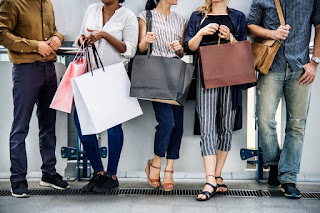Are there ways of spending money that will make you happier?
Another likely exception, that hasn’t previously been studied, is how social class, and specifically access to resources, affects this experiential advantage. Indeed, most research in this area has been performed with college students, who are typically more affluent than the general population, and there are reasons to believe that those who are less well-off might prefer material goods. For them, buying things as opposed to experiences could be more practical: they last longer, can be used multiple times and potentially resold in the future. To put this reasoning to the test, a recent paper in Psychological Science investigated whether the experiential advantage is diminished or absent for people who can afford very little compared with those who can afford a lot.
Jacob Lee and colleagues began by assessing the social status of hundreds of US citizens – most of them recruited via Amazon’s survey website – using the MacArthur Scale of Subjective Social Status, a ladder with 10 rungs representing relative social standing. At the top are people with the most money, most education and most respected jobs, while the bottom rung represents the worst off in society. Participants indicate where on this ladder they sit, which has been shown to be often more accurate than objective indicators of class, like income and education.
In the first experiment, participants recalled recent experiential and material purchases, and rated which one made them happier on a scale from -3 (definitely experiential purchase) to 3 (definitely object purchase). As predicted, those on a lower “rung” of the social ladder reported greater happiness from purchasing objects, while their higher-class counterparts were made happier by experiences.
In a second experiment, participants were randomly assigned to think of either a recent material or experiential purchase they had made and rate how happy it made them. Again, there was a significant interaction between class and purchase type, with an experiential advantage for higher-class participants. Happiness did not vary by purchase type for the lower-class participants.
In their third and final experiment, the researchers manipulated feelings of affluence to demonstrate a causal effect of social class on the pleasure derived from different purchase types. Participants first recalled a recent material and experiential purchase. Then, half of the participants imagined their monthly income had increased by 50 per cent, while the other half imagined theirs had decreased by 50 per cent. To bring this hypothetical situation to life, the researchers also asked the participants to spend time thinking about how they would allocate their budget with this new income, and how financially comfortable or constrained they would feel.
Finally, the participants rated their comparative happiness from an experiential or material purchase. Crucially, this was either the two purchases they had recalled at the beginning of the task, or two imagined purchases they would make now (with their new income). In this way, the researchers were able to demonstrate the difference between the purchase types when participants were primed to feel richer or poorer. Sure enough, there was an experiential advantage in the resource-abundant condition, and a trend towards material purchases in the deprivation condition, although this did not reach statistical significance. These findings are important because they imply a causal effect of access to resources: regardless of existing income, increasing or reducing an individual’s perception of their financial stability affected what type of purchase made them happier.
One underlying factor that could contribute to this effect is the amount of time available for experiences. It seems likely that more affluent individuals will have more free time or paid leave as well as disposable income, compared to those working several minimum-wage jobs to make ends meet. This could affect how appealing different purchase types are to both groups, an interpretation supported by lower social class participants in the current studies reporting a lower tendency to make experiential purchases than their higher-class peers.
This introduces the possibility that experiential purchases designed to create extra leisure time, like hiring a cleaner or having the groceries delivered, could be especially valued by the less well-off, building on recent research by Ashley Whillans and colleagues that suggested people who prioritise time over money are happier and that making time-saving purchases has a positive impact on wellbeing.
The most obvious limitation of the new research is its reliance on recall tasks. Memory is fallible and we are notoriously bad at knowing what makes us happy, so future studies would benefit from measuring happiness before and after participants make actual purchases of either type. It’s telling that in Whillans’ time-saving research, very few respondents chose to allocate money to save time, despite the results showing that doing so had the greatest impact on happiness. This implies we can’t necessarily rely on the purchases people make, or what they think about them, as an indicator for what is best for wellbeing.
For now, this new research adds further nuance to our understanding of the complex relationship between money, purchases and happiness, suggesting that what makes you happiest could depend on anything from your income to your personality type to your amount of free time.
Post written for the BPS Research Digest by Juliet Hodges. Juliet has a background in psychology and behavioural economics.
Christiane Blanco-Oilar, Ph.D., ABPP is a Board Certified Counseling Psychologist, specializing in Boca Raton Therapy. Dr. Blanco-Oilar has expertise in helping you through life transitions, grief and loss, intimacy issues, relationship difficulties - Couples Therapy Boca Raton - and in supporting your goal to achieve vibrant relationships with yourself and others. Offering therapy in Spanish.



Comments
Post a Comment